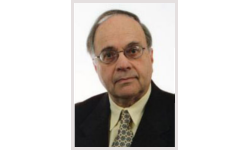
The French idiom for “hobby” is violon d’Ingres, which is defined as “an occasional pastime, an activity other than that for which one is well-known, or at which one excels.” This originated from the alleged story that the great painter Ingres preferred to play his violin—badly—for visitors instead of showing them his pictures. It turns out that my violon d’Ingres est le violon.
I have been studying classical violin since the age of eight. While in high school and university, I continued my music studies at the Conservatory in Belo Horizonte. However, my many activities in engineering, internships, and two years in the army at the local equivalent of the ROTC prevented me from graduating from there. During my doctoral studies in Illinois, I had the privilege to study with Paul Rolland who was a master string pedagogue as well as a top violinist. During my stay in Grenoble, I continued my studies at the local conservatoire and spent a summer in Nice studying with a professor of the Paris Conservatoire (Mr. Benedetti).
But it was in Boston in 1968 that I established contact with Roman Totenberg who I consider to be one of the greatest violin teachers and artists following the tradition of Carl Flesch. Since that time, I have been a student and close friend of Roman until his death as a centenarian. Most of what I know about violin playing (ranging from Bach to contemporary music), I owe to him. In countless lessons, Roman patiently familiarized me with most of Beethoven’s sonatas, and the works of others like Franck, Debussy, Ravel, Faure, Hindemith, Dvorak, Milhaud, Grieg, Poulenc, Stravinsky and Janacek.
In the mid-eighties, I had the pleasure of playing chamber music with my colleagues and friends Alan Robinson (piano) and Koichi Furukawa (cello). We performed several trios during many of the international conferences in Logic Programming. In the past, I have participated regularly in amateur chamber music groups at Kneisel Hall in Blue Hill, Maine, and at Wellesley College in Massachusetts.
The intersection between music performance and computer science has always intrigued me. Even today, I continue to explore topics as varied as music notation languages (e.g., Finale and Sibelius) and the automatic recognition of music scores and their ability to aid in practicing and accompaniments. Above all, playing the violin and studying how to surmount its vast technical difficulties is among the most engaging endeavors I have accomplished in my life.
